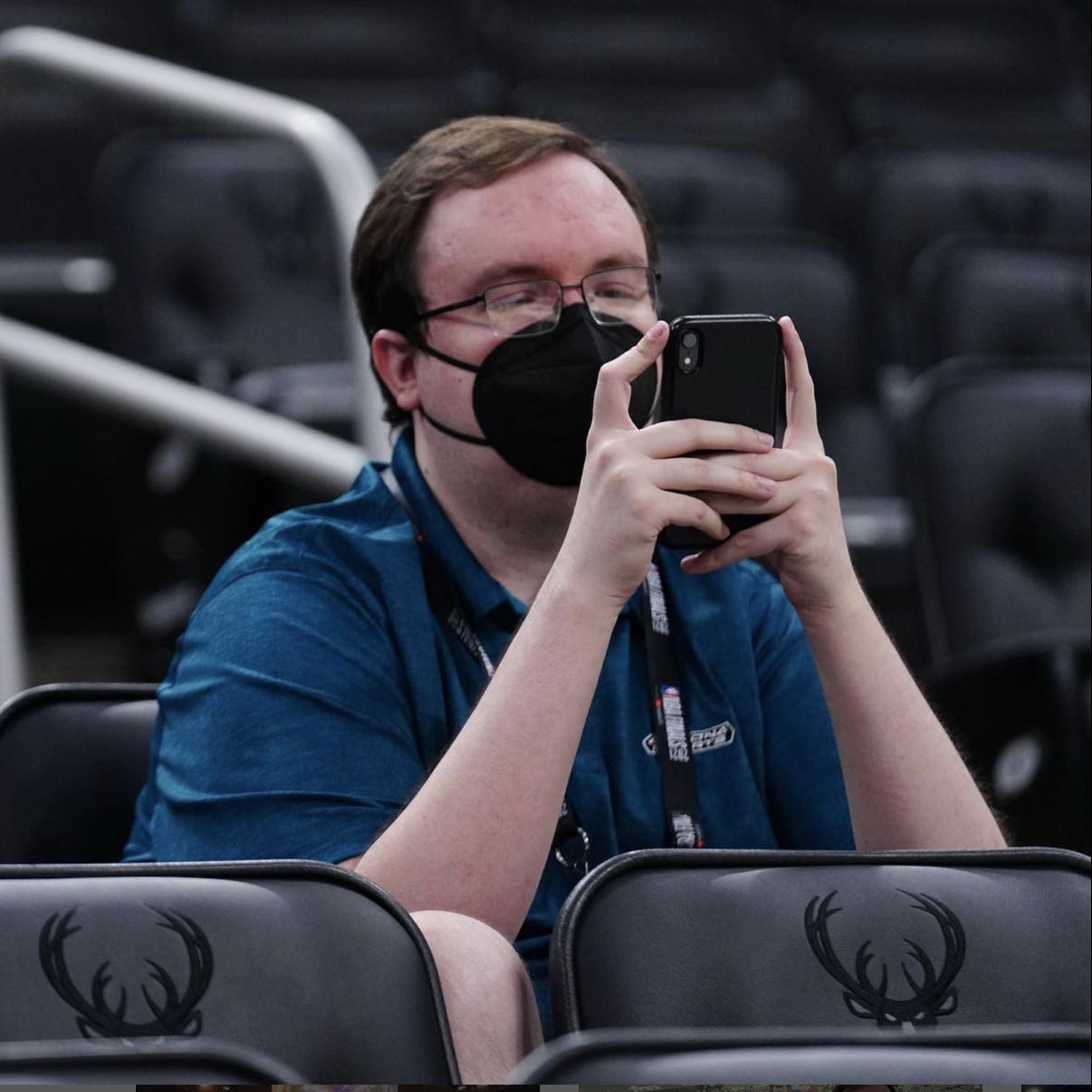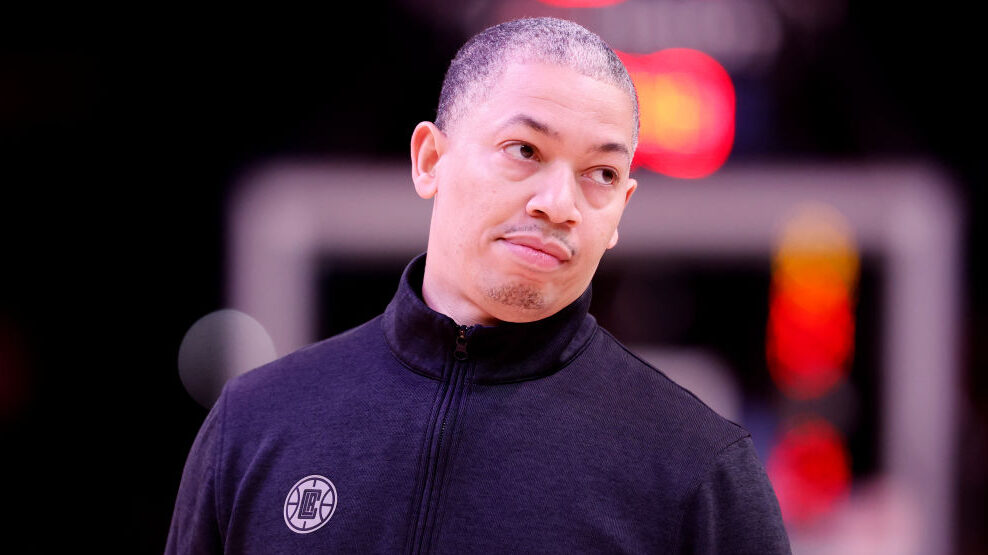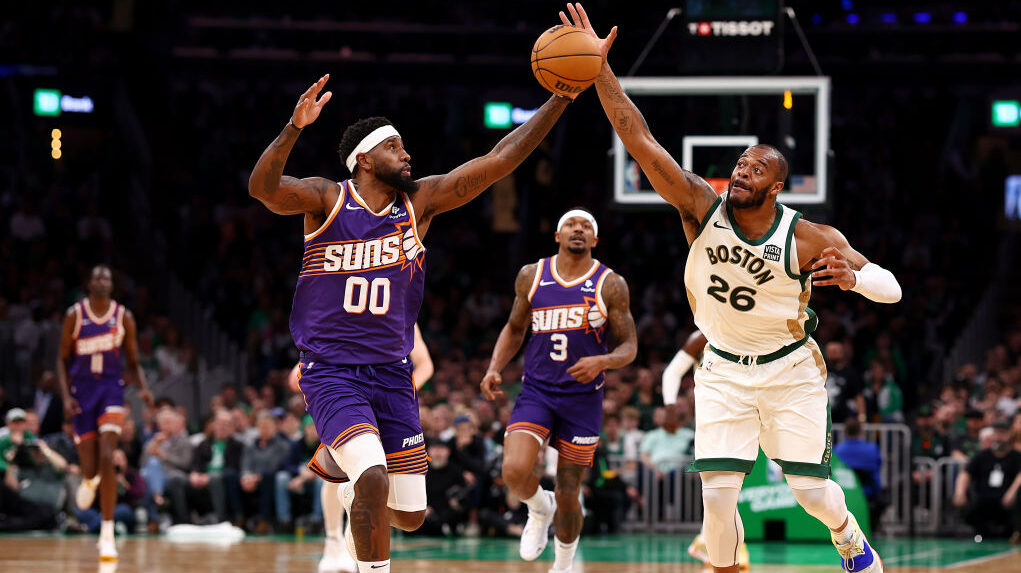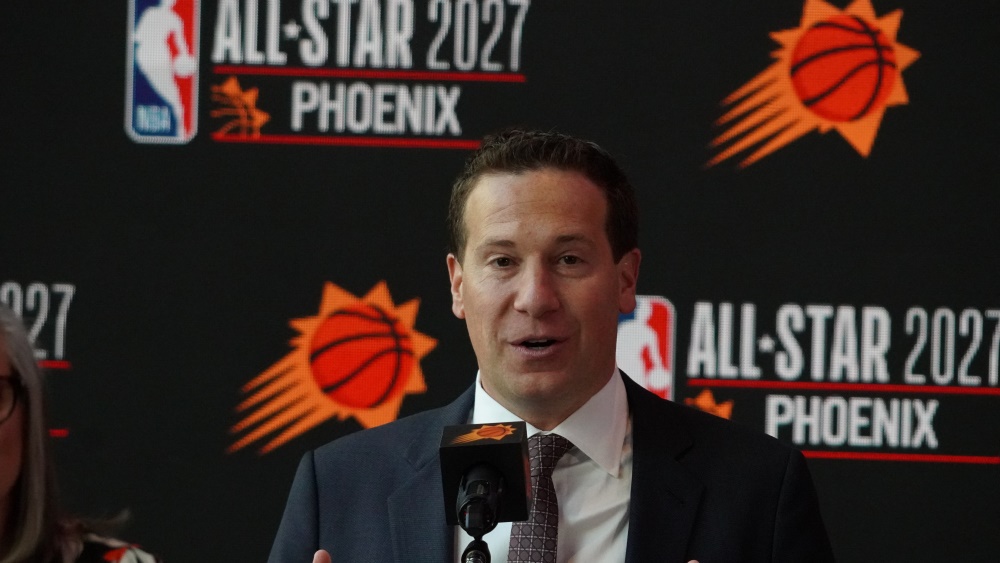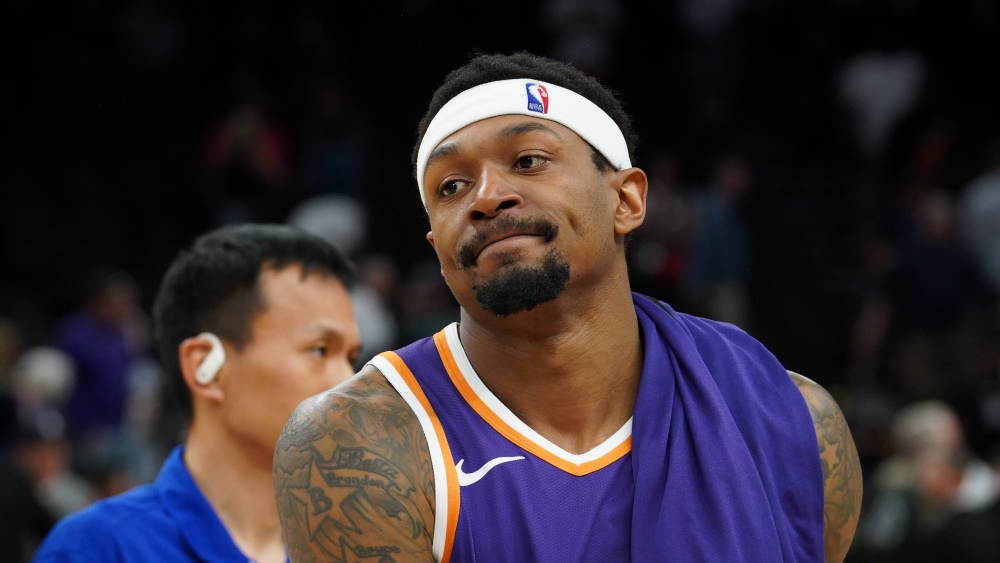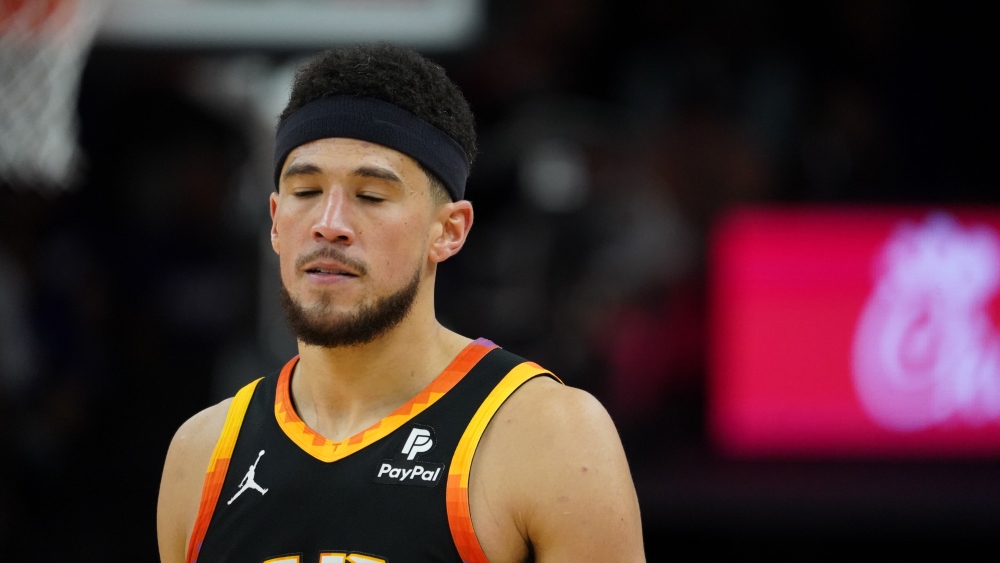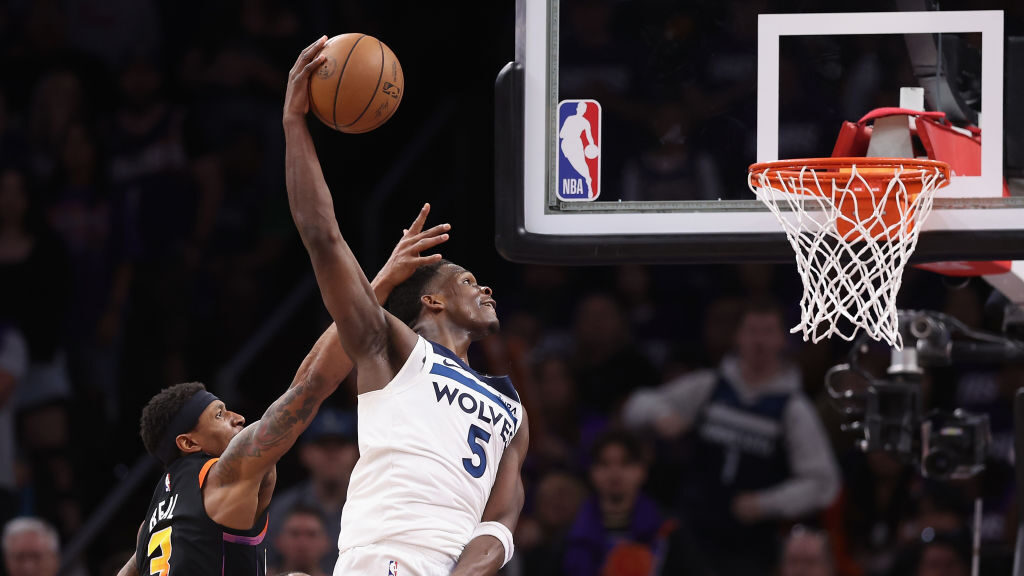Brandon Knight’s benching leaves career at crossroads
Oct 4, 2016, 6:04 AM | Updated: 2:31 pm
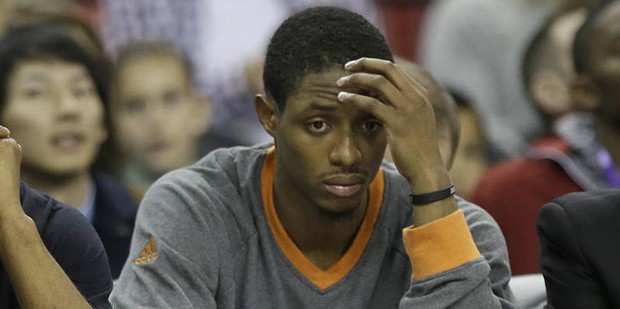
Phoenix Suns' Ronnie Price, left, and Brandon Knight, endure the closing moments of the Suns' 142-119 loss to the Sacramento Kings in an NBA basketball game, Saturday, Jan. 2, 2016, in Sacramento, Calif.(AP Photo/Rich Pedroncelli)
(AP Photo/Rich Pedroncelli)
The talk around the Phoenix Suns in the offseason was about who would start at shooting guard on opening night.
Hoping to receive some clarity on Media Day, Suns fans were instead greeted with more noncommittal answers regarding the question of Brandon Knight or Devin Booker.
With training camp over and the preseason starting Monday, head coach Earl Watson made an unexpected statement by declaring his starting lineup.
The evaluation on Booker transitioning from a high IQ player and lights-out shooter on draft night into an all-around offensive weapon and future of the franchise in one season brought a tidal wave of momentum for the future of the starting backcourt including Booker, especially considering Knight’s play last season.
Despite the pluses and minuses added up on Ryan McDonough’s rap sheet over the course of his time as general manager, the trade for Knight was his first true gamble. Goran Dragic wanted out, but McDonough chose Knight over Isaiah Thomas and a very valuable first-round pick from the Los Angeles Lakers.
At first glance, the move appeared to be a win-win. Knight’s skills as a shot creator and three-point shooter seemed like a solid fit off the ball of Bledsoe compared to the past failures with Dragic and Thomas.
Less than 18 months later, it’s clearly a loss, even ignoring Thomas’ All-Star success and the draft pick holding value. Knight generally played bad basketball last season, being unable to find consistency in his three-point shot or creating good looks for himself or teammates. Perhaps worst of all, he submarined as a defender after proving to be competent with the Milwaukee Bucks. If there was one area of the court Knight could have held an edge over Booker, it was there, but he wasn’t even that much better, and Booker was very bad.
Knight’s poor play last season made this a decision, not Booker’s breakout.
With that in mind, Booker was the right choice, and despite Knight’s pedigree as the veteran of the two, the fact that he’s started 96 percent of his games, or his $14 million a year contract, Watson was able to make that choice. Most importantly, his reputation as a coach makes him the ideal person to guide Knight to accepting a successful bench role.
Watson, now in the first year of a three-year deal as the permanent head coach of the Suns, undoubtedly has the support of the locker room and succeeded at building a relationship with his players while also being able to convey a message. Despite whatever level they may reach in the Xs and Os, there’s a good chunk of coaches in all sports that fail at this part of the job.
Watson doesn’t, and now it’s his job to prove that by overcoming a true obstacle: getting Knight to buy into being a sixth man.
The good news for Watson and everyone involved is Knight has the skills in place to thrive in the role. There’s a striking similarity in his stats when they are compared to some of the best microwave scorers of the past decade — Monta Ellis, Jamal Crawford and J.R. Smith come to mind — at his age, and his skillset matches some of them as well.
Like the team, Knight is at a crossroads in his career. He has the ability to turn this situation into an overwhelming positive, killing off the past notions associated with him around the league since his play in Phoenix as an ineffective player on the court and becoming a key member of a promising backcourt.
In terms of how he goes about it, that’s really up to him. He was completely dismissive of a bench role at Media Day, shooting down any questions involved with a move by giving cliche answers, and then declining to speak Monday after the move was announced.
His disassociation with the media and discussing it shouldn’t be a surprise given how much flack he’s taken the past year and it shouldn’t matter anyway, as long as the locker room dynamics don’t shift and he plays well.
Of course, if that’s not the case, Knight will be the latest guard in Phoenix unhappy with their place in the team or shipped out anyway. Unlike Dragic and Thomas, however, both the player and the team might eventually arrive at the point where it’s the proper time to move on.
The Suns’ clear decision this summer was to build around a future core. Booker, Dragan Bender and Marquese Chriss are the preferred pieces for the future in place, while Jared Dudley, Tyson Chandler, P.J. Tucker and Leandro Barbosa were all either kept or signed to build more of a veteran presence and add stability.
Knight’s somewhere in the middle, and the decision to pick Booker could be either the beginning of the end of his time in Phoenix and the third time he’s been traded in five years or the rebirth of his career.

